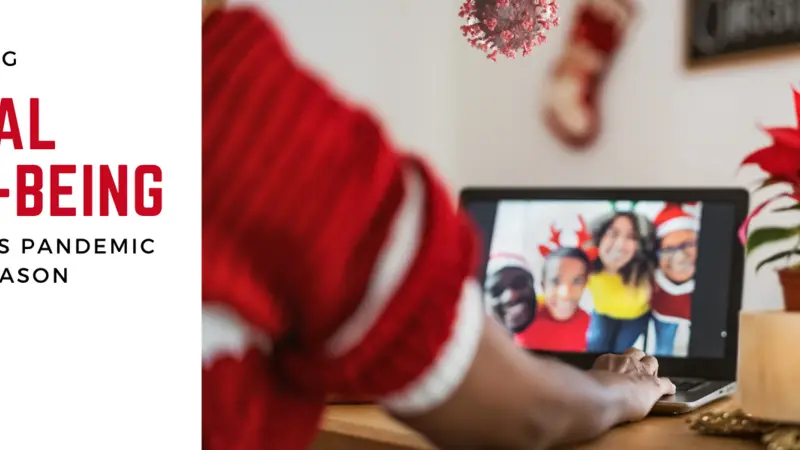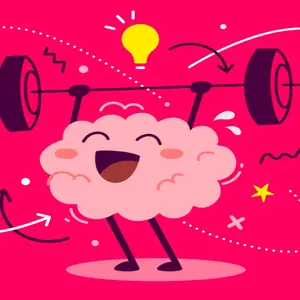

Mental and Behavioral Well-Being

Mental and Behavioral Well-Being
Maintaining Mental Well-Being During This Pandemic Holiday Season
The holidays are usually a time of joy and excitement. No matter which particular holiday one may be celebrating, families the world over come together to exchange gifts, share meals, and participate in what’s considered to be one of the most wonderful times of the year.
This year, however, with the pandemic surging across the globe, many are unsure how, or even if, they can gather. Officials have repeatedly stated the importance of reducing physical interaction and travel to limit the spread of the highly contagious COVID-19 virus, leaving many in isolation, away from their loved ones.
For many, especially those who struggle with mental health problems, the prospect of being alone or without extended family this year is leading to feelings of depression, loneliness, and anxiety. However, exploring options to address psychological concerns and finding new ways to connect can help save the holiday spirit.
Although joyful, the holidays are traditionally a stressful time for many, but with COVID-19 added to the mix that stress has been compounded, leading to rising rates of depression and anxiety. One survey, conducted in June by the Centers for Disease Control and Prevention (CDC), found that 40% of adults in the US are struggling with mental health or substance misuse, while one in ten of the respondents had seriously considered suicide in the previous month.
Although joyful, the holidays are traditionally a stressful time for many, but with COVID-19 added to the mix, that stress has been compounded.
Depressive symptoms can include feeling down consistently for several weeks, sleeping too much or not enough, difficulty concentrating, weight loss or weight gain, and not experiencing pleasure when engaging in activities that one used to enjoy. COVID is at the heart of this increase, whether due to job or housing loss, or even the death of a loved one from the virus. Many families are experiencing food insecurity, and food banks across the country are overstretched. Children are deeply affected too, picking up on the worries in their household. These factors, combined with the shortening days and approaching winter, together with the stressors surrounding the holidays, can seem impossible to manage for some.
However, there are numerous ways to develop resiliency, build community, and enjoy the holidays in these difficult times. Maintaining connections and avoiding isolation is a key factor in supporting both mental and physical health. Especially during the holiday season, a time for visiting family and friends, the safety of quarantining and social distancing can feel demoralizing and lonely. Making time to talk with loved ones over the phone, cooking with family through a video streaming service, or even taking the time to send a letter, can greatly improve health outcomes.
Studies have found that when individuals are provided with resources to improve social connection, be it through service projects, discussion and support groups, classes, and even befriending services, hospital visits and healthcare spending significantly decrease. Finding ways to interact with others, even while spending the holiday season in quarantine or without your extended family, is a vital part of improving mental health.
Nurturing feelings of gratitude and optimism can also significantly help stave off depression during the holidays. Several studies found that positive reframing mediates the relationship between gratitude and depressive symptoms. In other words, gratitude increases positivity and helps individuals see difficult situations through a more constructive lens, which in turn reduces symptoms of depression. This means that staying grateful for having a home, family, food, a job, good health, or any number of variables, and remaining optimistic, are important coping tools for mental wellness.
The whole family can participate in finding ways to give, and this selfless act is at the heart of the holiday spirit.
Similarly, finding ways to help others can boost gratitude and positive emotions, while at the same time create social connection and benefit the community. Whether through donating canned goods, sending gifts to children in need, or sending homemade holiday cards to the elderly, giving back to the community helps individuals recognize how fortunate they are and creates a chance to form or solidify relationships. Not only does helping others help the giver, it also provides an opportunity for gratitude for those they assisted. The whole family can participate in finding ways to give, and this selfless act is at the heart of the holiday spirit.
Households with children face a unique set of challenges during the holidays. While children are extremely adaptable and resilient, it can be hard for kids of any age to change their holiday routine and stay at home. Since children have highly attuned emotional radar, they detect the mood of household members, even if those members are attempting to disguise it. So, for their children's sake as well as their own, it's important that parents and others living in the house address their own mental health needs, as well as those of their children.
It's important for adults to be open and honest with kids, taking age into consideration, when explaining the current circumstances. Children look to their parents when trying to decide how to react in different situations. Seeing this time as an opportunity to develop parent-child relationships, build family bonds, and lead by example gives children the tools they need to navigate mental health challenges later on in life.
The type of relationship parents foster with their children early in life is linked to the child's mental health resiliency in later years. Studies have found that secure attachment to a parent will help a child recognize when to be grateful and respond appropriately. Higher scores in the trait of gratitude in childhood are linked to fewer depressive symptoms later in life.
This holiday season can be remembered as a time of sharing, giving thanks, and celebrating loved ones.
While many parents find it trying to spend nearly every waking hour with their kids, making an effort to appreciate the extra time spent at home as a family and finding fun activities to do together can help everyone cope. Remembering to try to appropriately acknowledge and process difficult emotions, practice self-care and tend to one’s own mental health needs will not only make for a more enjoyable holiday season, but will also help children succeed later in life.
The holidays are a season of joy and giving. Though this year’s festivities come with a mix of challenges, both old and new, making small changes for mental wellness by reaching out to others, practicing gratitude, helping those less fortunate, and staying present can help alleviate the entangled pressures of celebrating during a pandemic.
Appreciate time with family, whether in person or over video chat, always look for silver linings, and know that the pandemic will end. And when it does, this holiday season can be remembered as a time of sharing, giving thanks, and celebrating loved ones.
REFERENCES
Dusen, J. P. V., Tiamiya, M. F., Kashdan, T. B., et al. (2015). Gratitude, depression and PTSD: Assessment of structural relationships. Psychiatry Research, 230(3), 867-870. https://doi.org/10.1016/j.psychres.2015.11.036
Gordon, E., (2020, November 17). The coronavirus pandemic: Mental health fatigue, the holidays, and resiliency [Video]. The Forum. https://theforum.sph.harvard.edu/events/the-coronavirus-pandemic-25/
Lambert, N. M., Fincham, F. D., & Stillman, T. F. (2011). Gratitude and depressive symptoms: The role of positive reframing and positive emotion. Cognition and Emotion, 26(4), 615-633. https://doi.org/10.1080/02699931.2011.595393
Lambert, N. M., Graham, S. M., Fincham, F. D., et al. (2009). A changed perspective: How gratitude can affect sense of coherence through positive reframing. Journal of Positive Psychology, 4(6), 461-470. https://doi.org/10.1080/17439760903157182
McLaren, C., (2019, August 21). Treating loneliness as a medical condition. Reasons to be Cheerful. https://reasonstobecheerful.world/all-the-lonely-people-are-not-so-lonely-anymore/
Scott, V., Verhees, M., De Raedt, R., et al. (2020) Gratitude: A resilience factor for more securely attached children. Journal of Child and Family Studies. https://doi.org/10.1007/s10826-020-01853-8


 By
By



